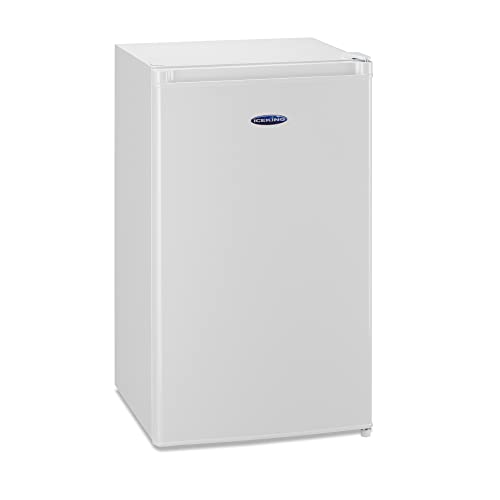20 Trailblazers Leading The Way In Fridges
Understanding Refrigerators: A Comprehensive Guide
Refrigerators, frequently described as fridges, are important home appliances in modern homes and commercial facilities. They play an important function in maintaining food and drinks, ensuring they stay fresh and safe for consumption. Throughout Fridge Sale , advancements in technology have actually transformed the simple fridge into an advanced home appliance that comes equipped with numerous functions and performances. In this article, we will explore the various kinds of refrigerators, crucial functions to consider when acquiring one, and upkeep pointers to extend its life expectancy.
Kinds of Refrigerators
When it pertains to fridges, there is a wide variety of choices available in the market. Each type deals with different requirements and preferences, making it vital for customers to comprehend their characteristics. Below is a summary of the main types of refrigerators:
Type
Description
Pros
Cons
Top-Freezer
A conventional design with a freezer compartment above the refrigerator area.
Affordable, familiar style
Limited storage area for fresh food
Bottom-Freezer
Functions a freezer compartment located at the bottom for simpler access to fresh food.
Ergonomic style, more fresh food area
Freezer may require flexing to access
Side-by-Side
Split vertically, with the freezer on one side and the refrigerator on the other.
Practical access to products, adequate storage space
Narrow storage bins
French Door
Combines a bottom freezer with double doors for the refrigerator section, providing versatility.
Trendy design, easy access to foods
Higher price point
Compact Fridge
Smaller sized units created for limited areas such as dorm rooms or workplaces.
Space-efficient, portable
Limited storage capacity
Smart Fridge
Geared up with Wi-Fi connection and touch screens, allowing users to manage groceries digitally.
High-tech features, energy-efficient
Costly and may require updates
Secret Features to Consider
When purchasing a refrigerator, it's important to evaluate certain features to guarantee it satisfies your needs. Here are crucial elements to consider:
Size and Capacity
- Guarantee the fridge fits your cooking area area.
- Think about the total capacity based on your home requires.
Energy Efficiency
- Search For ENERGY STAR ratings to ensure energy efficiency, which can minimize electrical power expenses.
Cooling Technology
- Check if the fridge utilizes standard cooling, double cooling, or advanced technologies like inverter compressors for better efficiency.
Storage Options
- Assess shelving versatilities, crisper drawers, and adjustable compartments for effective storage and organization.
End up and Design
- Pick a finish (stainless steel, matte, and so on) that matches your cooking area décor. Remember to think about the overall design, whether smooth or traditional.
Smart Features
- Consider smart fridges if you want features like temperature control via an app, inventory tracking, and alerts when the door is exposed.
Upkeep Tips for Refrigerators
Appropriate upkeep can substantially extend the life of a refrigerator. Here's a list of essential upkeep practices:
Regular Cleaning: Keep the interior clean and without spills and expired items. Monthly cleaning is suggested.
Examine Temperature Settings: Ensure the refrigerator is set between 35 ° F and 38 ° F, while the freezer needs to be at 0 ° F to preserve food security.
Tidy Condenser Coils: Dust and debris can accumulate on the coils, decreasing performance. Cleaning them every 6 months is recommended.
Examine Door Seals: Regularly check the door gaskets for wear and tear. An excellent seal is important for keeping temperature.
Thawing: In older designs, thaw the freezer frequently to prevent ice buildup. Some modern fridges included auto-defrost functions.
Keep Vents Unobstructed: Ensure air flow is not blocked by products, which can hinder cooling performance.
Screen Food Storage: Properly shop foods and prevent overloading the fridge, which can limit airflow.
Often Asked Questions (FAQs)
How long do refrigerators generally last?
- A lot of refrigerators last in between 10 to 15 years, depending upon the design and upkeep.
What can I do to keep my fridge running effectively?
- Regular cleansing, examining temperature level settings, and keeping correct ventilation can enhance performance.
Is a clever fridge worth the investment?
- If you often cook, captivate, or need innovative features such as remote temperature level control and inventory tracking, the financial investment might be rewarding.
Can my refrigerator cause high electrical power bills?
- Ineffective models, poor maintenance, or leaving the door open can cause increased electrical energy consumption.
What's the difference in between a top-freezer and a bottom-freezer design?
- A top-freezer fridge has a freezer area above the fridge, while a bottom-freezer design has a freezer drawer at the bottom for ease of access to fresh food.
Refrigerators are vital in modern-day cooking areas, serving not just as storage for perishables but also reflecting developments in technology and benefit. With the myriad choices offered, comprehending the types, functions, and maintenance can empower consumers to make informed choices. Correct care can guarantee that a fridge remains effective and functional for several years, eventually boosting the total food storage experience in the home. Whether selecting a trendy French door design or a compact fridge for a studio apartment, customers today are geared up with the knowledge to select the right device for their needs.
